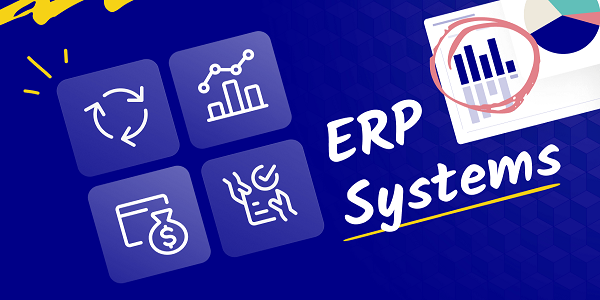
Cookies and Privacy
We use cookies to ensure that we give you the best experience on our website. To learn more, go to the Privacy Page
 General
General
By its very nature, an enterprise solution touches all parts of your enterprise. How can it be delivered without the involvement of your enterprise’s most valuable asset—your people?
Leverage Technologies believes every project requires some internal ‘muscle’ and support. Working together complements and informs our efforts to implement your ERP solution, resulting in a more effective project, and therefore increases your potential return on investment.
A skillfully-configured ERP solution enables better business operations and teamwork—allowing your business to transform how you work and reap the benefits, such as improved efficiency, cash flow, and customer experience.
How your people will drive this transformation, or be impacted by it, can be overlooked if you’re too focused on the technology.
A successful ERP implementation relies on the people within your organisation as much as it does on the technology you implement or your implementation partner.
There are three key reasons this is true:
Lack of clarity about the path to digital transformation, lack of leadership, and lack of focus—on people and processes, outcomes and benefits, and managing risk—are some of the main reasons that digital investments fail, according to Australian digital governance expert Dr Malcolm Thatcher.
Software consultants can provide valuable advice and technical skill, but they can’t effectively embed new ways of working within your business. That transformation needs to happen internally, and continue to be nurtured over time by how you manage, engage and develop your team.
Actively engaged executive sponsorship is critical to the success of any project. Engaged leaders ensure projects are more purposeful, and driven by high-level business objectives. When people understand why a project matters, they can focus on delivering the right outcomes.
Business leaders or Board Directors should also provide governance—overarching guidance on project performance, risk and issues management. Good governance relies on having clear lines of reporting and boundaries. You don’t want your governance committee bogged down in details that should be handled by the project manager; it causes delays and confusion.
Partnering with a reliable software partner/reseller to manage your implementation is a smart move. But the relationship must be a partnership.
Ideally, a senior executive ‘sponsors’ the project and you’ll also appoint an internal project manager—it could be an existing staff member who takes on extra duties, or you may prefer to hire a resource for the project duration.
Internal resources who champion the project and manage delivery help ensure the project stays on track and the ERP solution is aligned to your business and employee needs. In-house personnel also coordinate activity and decision-making processes so you can meet deadlines.
At various stages of the implementation, different team members will need to have input to:
Another factor that affects ERP implementations is people’s attitude to change and their digital literacy. If you don’t have an adaptable, innovative organisational culture and a digitally-savvy workforce, you’ll have to work harder to help your team embrace a new ERP system.
A new enterprise solution will take people out of their comfort zone—you’ll have to take the time to explain why the change is happening, what’s involved, and what’s in it for them. Otherwise, the change can result in employees becoming disengaged or disruptive. Good change management practices include involving people in the process, communicating well and often, and providing opportunities for people to express feedback.
Additionally, the digital knowledge and skills held by your team will influence system uptake. Training and education may be needed to enhance your team’s digital and data literacy.
You can also make life easier on your team by selecting ERP software with great usability and automation, and ensuring that your solution is carefully configured to make workflows, reporting, and analytics dashboards more intuitive and meaningful for users.
The involvement and empowerment of your people, at every level, will influence the outcome of your ERP implementation project. But you don’t have to do it alone—pick a trustworthy and experienced software consultancy to bolster your capacity to achieve your goals. Sign up here